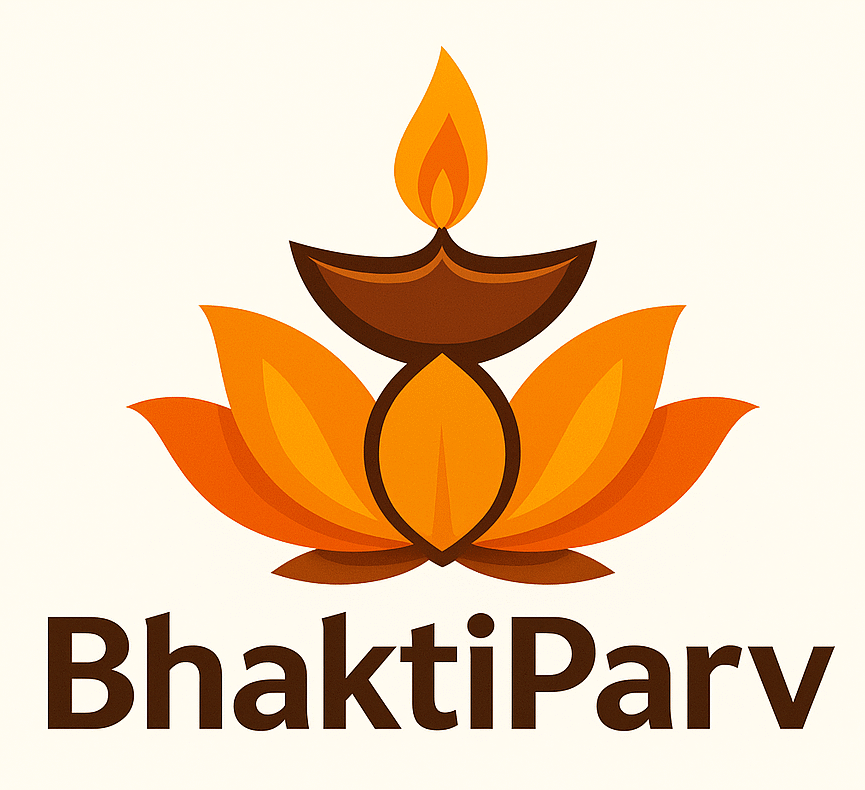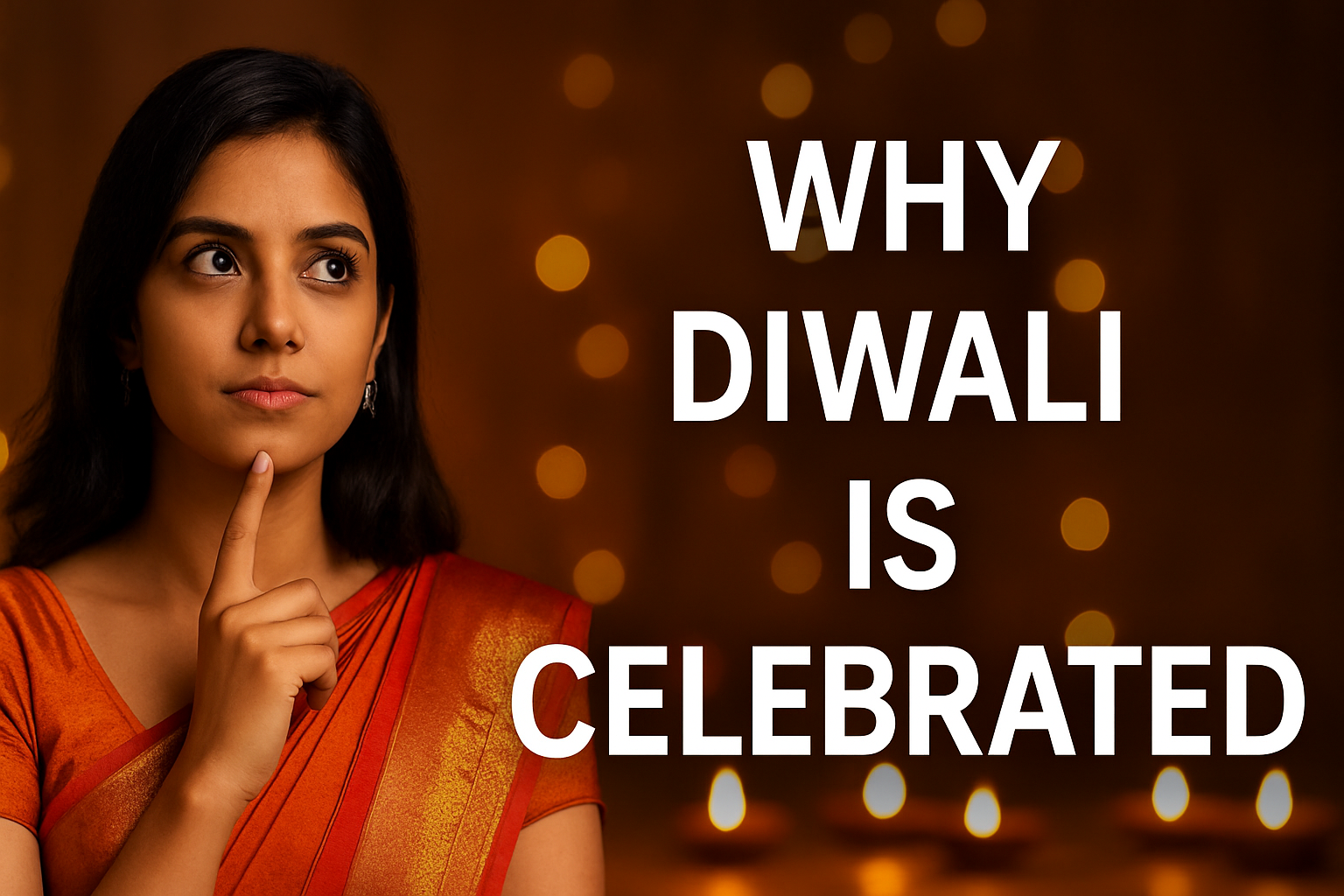Introduction
Diwali, also known as Deepavali, is one of the most celebrated and loved festivals in India. It is known as the Festival of Lights, symbolizing the victory of light over darkness, good over evil, and knowledge over ignorance. But have you ever wondered why Diwali is celebrated?
The answer goes beyond lights and sweets — it lies deep within our culture, mythology, and spirituality. Let’s explore the true reason behind Diwali’s celebration and its importance in Hindu tradition.
When is Diwali Celebrated?
Diwali usually falls in the month of October or November, according to the Hindu lunar calendar. It occurs on the Amavasya (new moon day) of the Kartik month.
In 2025, Diwali will be celebrated on Monday, October 20, 2025, with Lakshmi Puja being the main ritual of the day.
The Historical Reason Behind Diwali
The celebration of Diwali is rooted in ancient Hindu scriptures and legends. Different regions of India celebrate it for different historical reasons:
- Return of Lord Rama to Ayodhya:
In North India, Diwali marks the return of Lord Rama, Mata Sita, and Lakshmana to Ayodhya after 14 years of exile and the victory over Ravana, the demon king. The people of Ayodhya lit diyas to welcome their beloved king — symbolizing the triumph of good over evil. - Birth of Goddess Lakshmi:
According to another legend, Goddess Lakshmi — the deity of wealth and prosperity — was born from the churning of the ocean (Samudra Manthan) on Diwali day. Therefore, devotees worship her for wealth and blessings. - Lord Krishna and Narakasura:
In South India, Diwali is celebrated as the day Lord Krishna defeated the demon Narakasura, freeing the world from fear and darkness. - Mahavira’s Nirvana:
For Jains, Diwali is the day Lord Mahavira, the 24th Tirthankara, attained Nirvana. - Guru Hargobind Ji’s Release:
In Sikh tradition, Diwali marks the day Guru Hargobind Ji was released from captivity, symbolizing freedom and justice.
💫 Spiritual Significance of Diwali
Beyond the stories and rituals, Diwali holds deep spiritual meaning.
It teaches us to remove the inner darkness of ego, anger, greed, and jealousy, and light the lamp of love, truth, and wisdom within.
Lighting diyas is not just a ritual — it’s a reminder to illuminate our hearts with positivity and compassion.
The victory of Lord Rama represents the eternal truth that good always wins, no matter how powerful evil may seem.
How Diwali is Celebrated Across India
Every region in India celebrates Diwali in a unique yet joyous way:
- Cleaning and Decoration: Homes are cleaned, painted, and decorated with rangoli and lights.
- Lakshmi-Ganesha Puja: Devotees perform puja to invite prosperity and peace into their homes.
- Exchange of Gifts & Sweets: People share happiness with loved ones by exchanging sweets and gifts.
- Fireworks: The sky glows with fireworks, symbolizing the joy of freedom and light.
- Charity and Kindness: Many people also donate to the poor and needy, spreading happiness to all.
Rituals and Traditions
- Early morning oil bath and wearing new clothes
- Decorating the house entrance with torans and diyas
- Performing Lakshmi Puja in the evening
- Offering sweets and prasad to Goddess Lakshmi and Lord Ganesha
- Sharing blessings and sweets with family and friends
Message of Diwali
The real message of Diwali is not just celebration — it’s self-purification and inner awakening.
It inspires us to remove negativity and bring light to others’ lives.
When each person lights their inner lamp, the whole world shines brighter.
❓ Frequently Asked Questions (FAQ)
Q1. What is the main reason behind celebrating Diwali?
A1. The main reason is to celebrate the victory of good over evil, as symbolized by Lord Rama’s return to Ayodhya and the birth of Goddess Lakshmi.
Q2. Why is Goddess Lakshmi worshipped on Diwali?
A2. Because she represents wealth, prosperity, and abundance. It is believed she blesses those who worship her with a pure heart.
Q3. How many days is Diwali celebrated?
A3. Diwali is a five-day festival, starting with Dhanteras and ending with Bhai Dooj.
Q4. What is the importance of lighting diyas?
A4. Diyas represent the victory of light over darkness — both physically and spiritually.
Final Thoughts
So, why Diwali is celebrated is not just about one story or one region — it’s a blend of mythological, spiritual, and moral lessons that guide us to live with love and light.
Diwali reminds us to stay positive, spread happiness, and always let goodness shine brighter than darkness.
May this festival fill your life with joy, peace, and prosperity. Happy Diwali! 🪔✨

